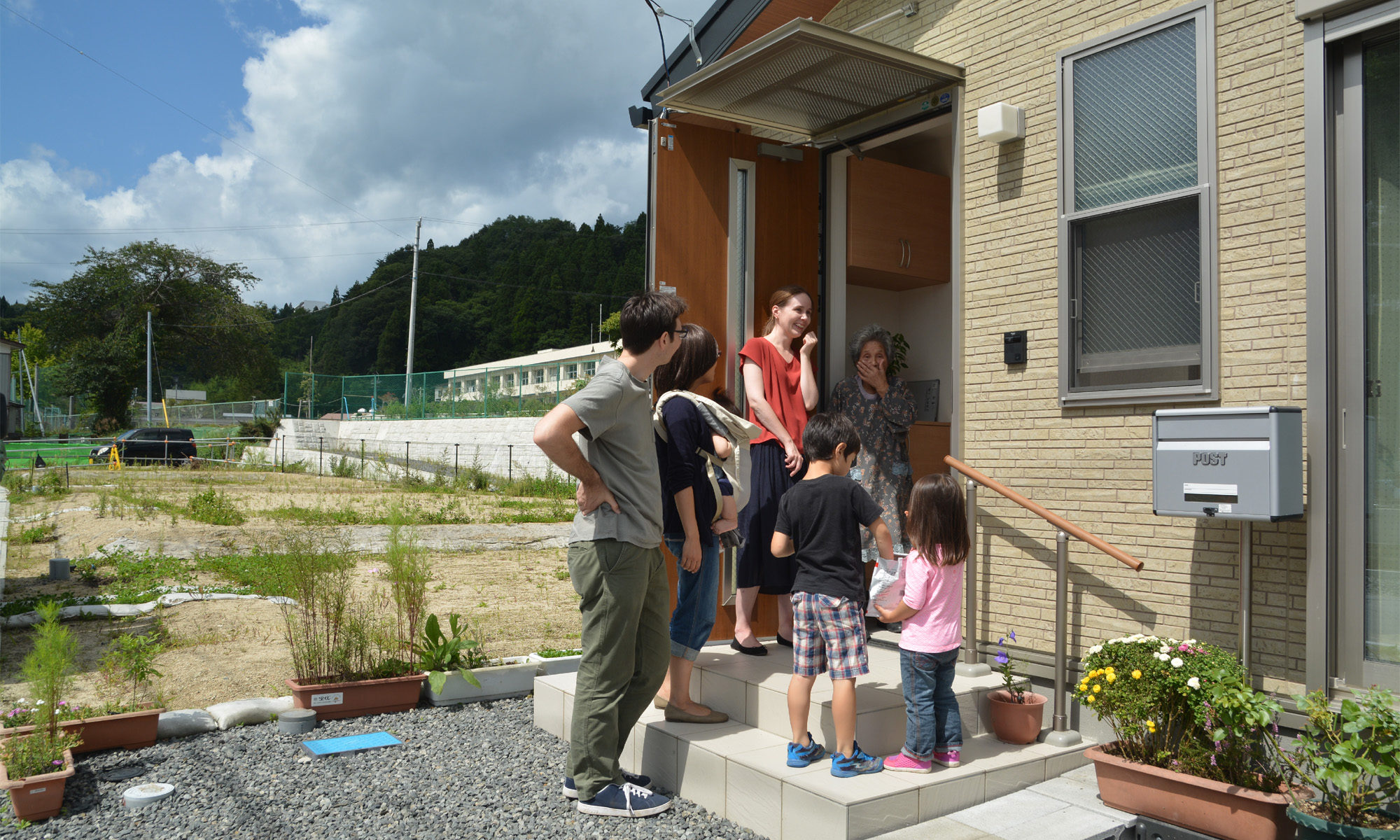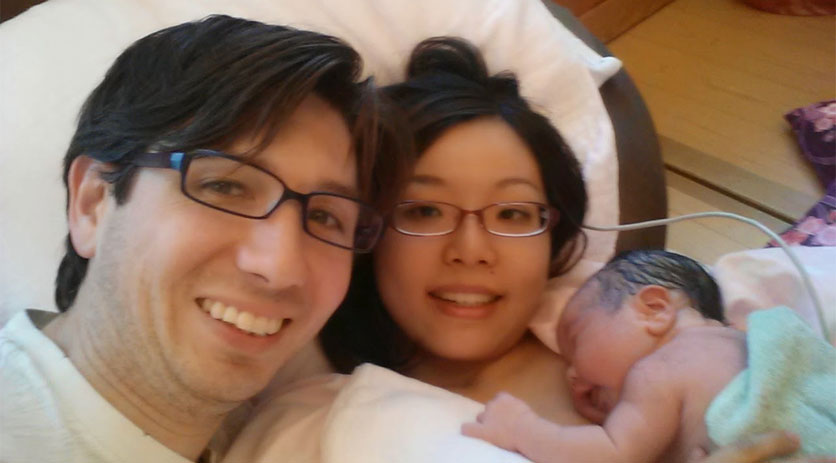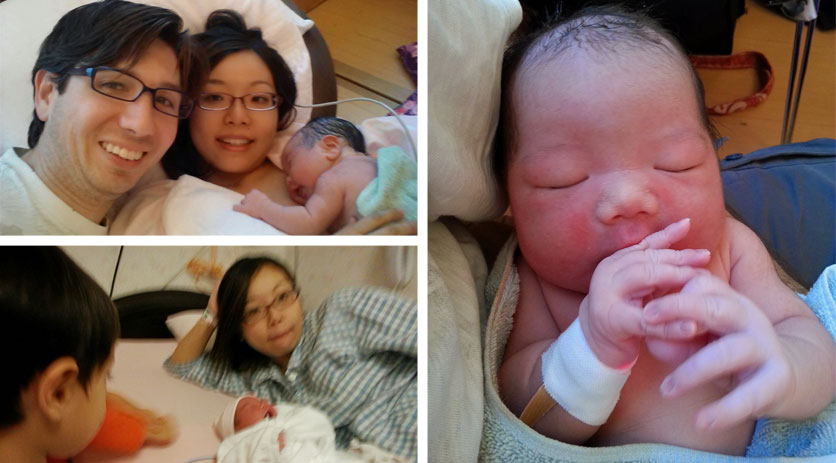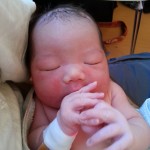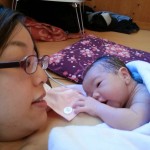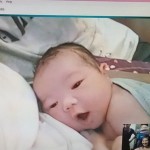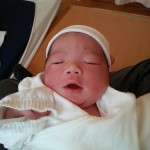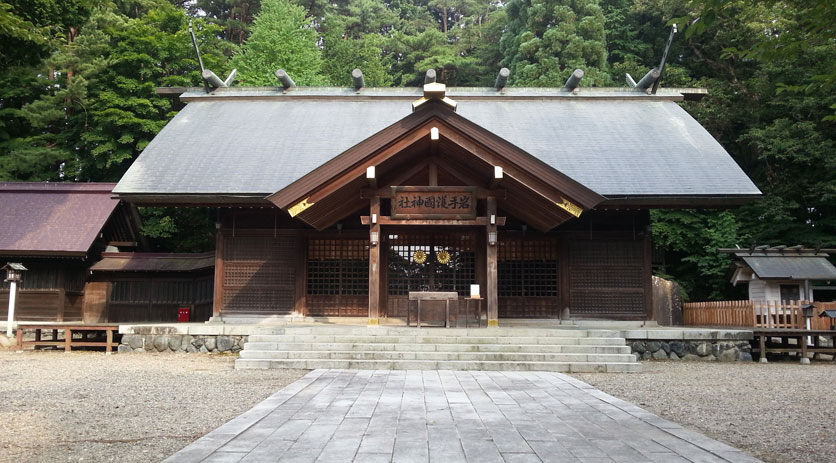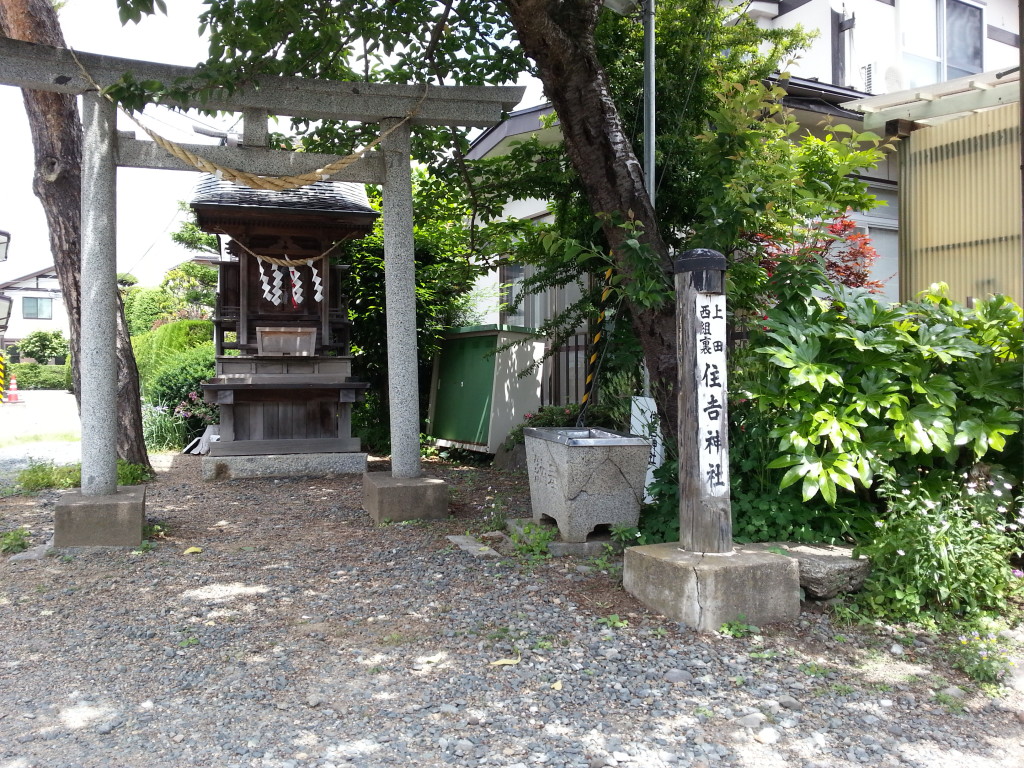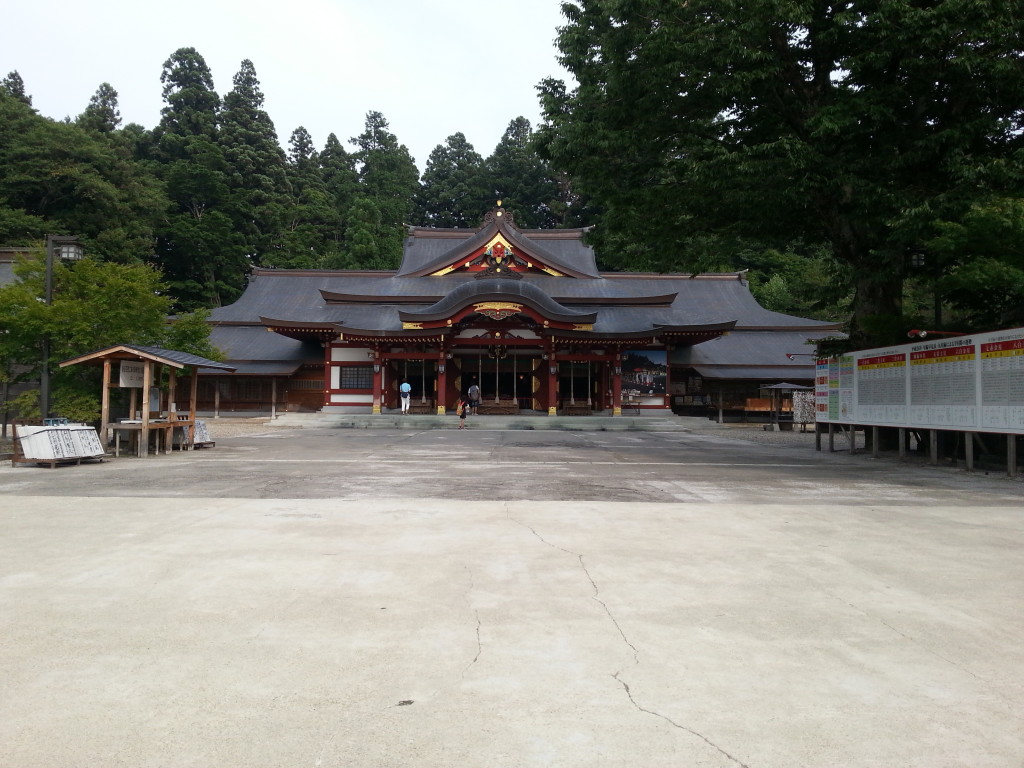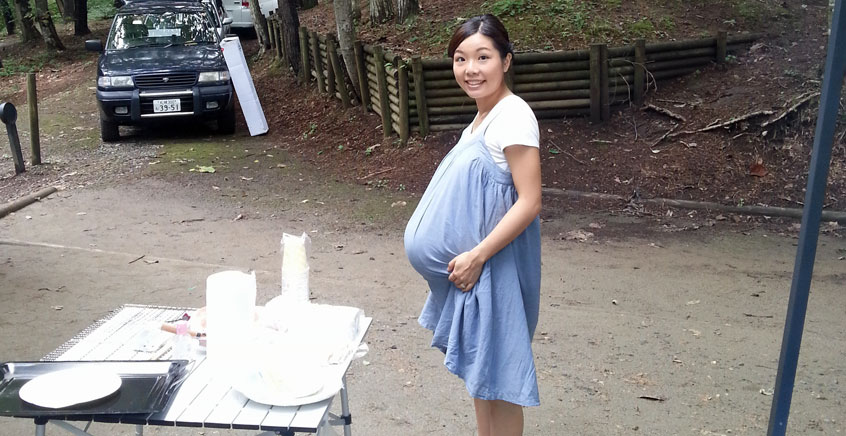At 1PM on September 16, 2014 God blessed us with the safe delivery of our daughter, Felicity 明(Mei) Robison! Felicity weighed 7 lbs. 13oz, and as is the norm here, was delivered naturally without epidural. Tomo went into labor at about 3AM that morning, and though the delivery was painful she’s recovering very well. Felicity seems to be a natural at nursing and loves to sleep… so far.
Tomo and the baby are staying at the hospital until Saturday (standard procedure here in Japan) which means me and Titus are fending for ourselves (ie. eating at McDonalds). Titus really loves his little sister and can’t stop talking about how cute she is.
Felicity’s middle name, Mei (pronounced “May”) is written with this kanji, 明, which means bright. Even at just a day and a half old she certainly has brought felicity and brightness into our lives, and we are constantly praising God for her.
Please be praying for a speedy recovery for Tomo, and that things won’t get too hectic for her after she comes home from the hospital. Titus is doing really well at preschool, so that will make things a little easier, as in the mornings while I’m at school Titus will also be in preschool, and Tomo won’t have to contend with a newborn and an extremely energetic two year old. My normal schedule is to stay at school in the afternoons to study, but for a while I’ll be coming home right after class gets out to help out. Please also be praying for me that I can keep up with learning Japanese, I have some big term finals next week.
Thank you for your faithful prayers for our family as we serve here in Japan. Since we arrived a year and a half ago we’ve seen God answer many prayers, direct us each step of the way. In July I passed the N3 level Japanese Language Proficiency Test, and I’ll take the N2 Test in November. One of my main language goals was to be able to pass the N2 test by the time I graduate language school in March of next year. After language school is over we’re scheduled to take a brief home service in the US in the Summer of 2015, and upon returning to Japan I’ll be starting an internship at our church here in Morioka under Pastor Kondo, where I’ll be able to get some first hand experience in church ministry in Japan, while also putting into practice the Japanese that I’ve been learning.
Please keep us in your prayers as we work alongside the believers here to reach out to the millions of Japanese who have never heard the gospel.
